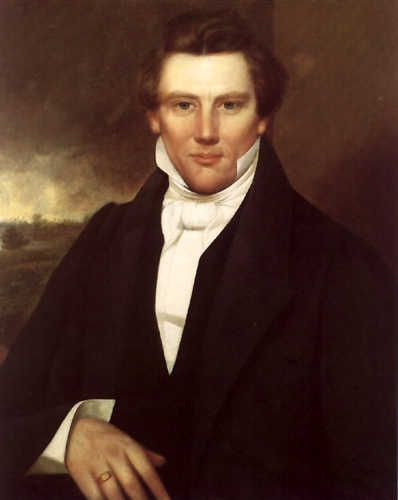

Prophets and Prophecy, What is a prophet?
by Robert Rosskopf
In modern language, a prophecy is a prediction of the future, but this is not the traditional biblical definition of a prophecy. The Hebrew word naba, translated as prophecy, connotes any utterance which is directly inspired by the Spirit of God.
http://strongsnumbers.com/hebrew/5012.htm
Thus a prophet is not someone who predicts the future, but someone who speaks for God and is inspired by God. A prophecy may not predict the future in any way. A false prophet, conversely, is someone who presumes to speak for God, but has not been commanded or inspired by God to speak.
"But the prophet, which shall presume to speak a word in my name, which I have not commanded him to speak, or that shall speak in the name of other gods, even that prophet shall die."
(Deuteronomy 18:20)
Not every word spoken by a prophet is a prophecy; i.e., not every utterance is inspired directly of God. This creates a quandry; how do we know which utterances are inspired?
And if thou say in thine heart, How shall we know the word which the Lord hath not spoken? When a prophet speaketh in the name of the Lord, if the thing follow not, nor come to pass, that is the thing which the Lord hath not spoken, but the prophet hath spoken it presumptuously: thou shalt not be afraid of him."
(Deuteronomy 18:20-22)
Thus the word of a prophet must be tested. Jesus taught:
"If any man will do his will, he shall know of the doctrine, whether it be of God, or whether I speak of myself."
(John 7:17)
We must follow the words of a prophet before we will know whether they are inspired of God, or whether the prophet was speaking for himself. This is the test of prophecy, although it is not the test of a prophet. A true prophet can speak for God, but he can also speak for himself.
Although prophets occasionally make predictions of the future, they are much more likely to convey the commandments and directives of God and to teach repentance. Mankind, in their weakness, would rather wait and see if a prophet's prediction comes true, before they will follow him. Often, as in the days of Noah, this is catastrophicly too late. When the floods came, it was too late to repent. The Lord expected the children of Adam to listen to Noah, and repent, to discover whether the prophecy was true, or whether he spoke of himself. Waiting for the external evidence - the flood itself - was the wrong choice.
Not every prediction in a prophecy comes to pass. Predictions are often dependant on whether the people repent or not.
At what instant I shall speak concerning a nation, and concerning a kingdom, to pluck up, and to pull down, and to destroy it; If that nation, against whom I have pronounced, turn from their evil, I will repent of the evil that I thought to do unto them. And at what instant I shall speak concerning a nation, and concerning a kingdom, to build and to plant it; If it do evil in my sight, that it obey not my voice, then I will repent of the good, wherewith I said I would benefit them. (Jeremiah 18:7-10)
This is what happened to Jonah. He prophesied the destruction of Ninevah under the direct order of God. The people of Ninevah repented, and the Lord had mercy on them, and did not cause the city to be destroyed. The people of Ninevah learned that Jonah was a true prophet because they repented, and learned to recognize the spirit of God, and not because of the failed prediction.
"Beloved, believe not every spirit, but try the spirits whether they are of God: because many false prophets are gone out into the world."
(John 4:1)
This is the true test of a prophet; we must "try the spirits", or in other words, learn to recognize the spirit of God. In the end, it is our faith that is tested, and our love of righteousness. The assurance that a man is a true prophet of God comes after the test of our faith.
